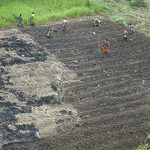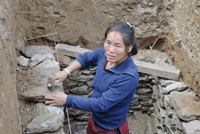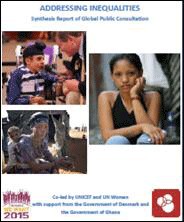Social Watch News
Published on Thu, 2013-02-21 17:41
Tanzania is endowed with abundant natural resources but lacks mechanisms for utilizing them effectively for micro and macro development. Invitation to foreign and local companies to invest in key economic sectors is yet to yield expected results. For instance, incentives and tax evasions are so high. The government is therefore urged to diversify the economy and find more viable and alternative sources of revenues for economic development. |
| Source: . Published on Sun, 2013-02-17 23:00 |
| Published on Fri, 2013-02-15 08:21 |
Published on Thu, 2013-02-14 22:37
Evidence in Nepal suggests that the root causes of the political conflict include not only the severity of poverty and inequality but also the sense of entrenchment - that opportunities are limited or non-existent for the poor to climb out of poverty. Therefore, addressing constraints on the inclusiveness of development is critical in order to make a real difference in the lives of Nepalis and reduce the risks of instability. |
Published on Thu, 2013-02-14 21:22
The Finnish government wants to be an accountable member of the international community, but its political will to be so does not always transpire. Finland has not, for example, been able to reach the 0.7 % target for its development funding. |
Published on Thu, 2013-02-14 19:54
Costa Rica has an outward image of sustainable country, committed to the environment; but the inner reality is very different. The tension between conservation and productive activities cause increasing social unrest because of land use. As an example of (un) fulfillment of the Millennium Development Goals we address the case of agroindustrial production of pineapple, which has been besieging communities and protected areas, and displacing traditional crops of nourishing importance. The technological package of agrochemicals used systematically is causing great concern, as it causes contamination of water sources. |
Published on Tue, 2013-02-12 16:51
The Synthesis Report of Global Public Consultation is based on and reflects an extensive global public consultation, held from September 2012 to January 2013. The Consultation process was co-led and facilitated by UNICEF and UN Women. |
|
Source: . Published on Tue, 2013-02-12 16:17
» |
| Source: . Published on Fri, 2013-02-08 23:00 |
| Published on Fri, 2013-02-08 08:44 |
SUSCRIBE TO OUR NEWSLETTER










